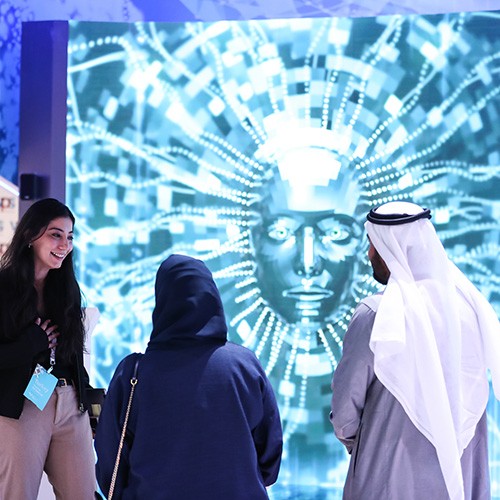UAE to tap into US$ 11.5 billion digital health start-ups industry, says new Arab Health report
- Arab Health report outlines the latest innovations in healthcare and examines the impact on the UAE and global healthcare market
- New Innovation Hub to be launched during the region’s largest healthcare showcase taking place from 28 - 31 January 2019 in Dubai, UAE
- More than 50 healthcare start-ups and SMEs to showcase new products and technological innovations
Dubai, United Arab Emirates, 15 October 2018: Arab Health, the largest exhibition for healthcare and trade professionals in the MENA region, has outlined the role of tech start-ups in playing a more vital role in the healthcare industry in areas such as personalised medicine and more efficient technology-enabled care models.
The report titled “Technology: Accelerating Innovation Across Healthcare” revealed that digital health start-ups are said to have raised US$ 11.5 billion in 2017, up 27% from 2016, exponentially increasing the pace of digital innovation in healthcare.
“The market is ripe for new healthcare start-ups and entrepreneurs looking to make their mark on the industry. Over the years, we have seen growing interest in new products and innovations that will contribute to shaping the future of healthcare. Hospitals, medical device manufacturers and service providers across the globe are facing increasing pressure to innovate in order to become competitive,” said Ross Williams,Exhibition Directorof Arab Health.
The report outlines the positive impact of technologies such as Artificial Intelligence (AI), Virtual Reality (VR), wearable technologies, 3D printing and drones as an agent for transformation in healthcare. According to Research & Markets, the global wearables medical devices market will reach US$ 14.41 billion by 2022, up from US$ 6.22 billion in 2017 at a CAGR of 18.3% during the forecast period. With similar strong growth predictions in all markets, cost savings and quality improvements in healthcare are increasingly emerging from innovative solutions.
Thom Soutter, Director, Business Development, Synapse Medical Services, said in the report: “Technology is at the forefront of any lean innovation that is required to disrupt outdated models that are costing healthcare spend, and innovation and telehealth advancements cannot come soon enough. A shift towards preventative methods is needed more than ever as an alternative to curative medicine where appropriate. Healthy lifestyle apps, telehealth and patient engagement through technology will be the key.”
Working alongside government entities such as UAE Ministry of Health and Prevention, Dubai Health Authority, Department of Health Abu Dhabi and SEHA, Arab Health will host the new Innovation Hub - a dedicated area at the show for attendees to immerse themselves in the latest healthcare innovations.
The Innovation Hub will feature the Innovation Showcase allowing visitors to explore cutting-edge healthcare technology including AI, disease management and home care devices, mobile device accessories, telemedicine platforms, to name a few.
According to Dr Mohammad Al Redha, Director, PMO, Informatics & Smart Health, Dubai Health Authority: “With the recently launched Innovation and Artificial Intelligence Strategy, the DHA is able to strengthen its medical and human capabilities to provide value-based and sustainable healthcare services to the people of Dubai by harnessing the latest technologies in the world of AI used in diagnosis and treatment. The Innovation Hub at Arab Health is a valuable platform to explore ways to transform ideas into reality.”
The Innovation Hub will also be the platform for the inaugural Innov8 Talks at Arab Health. As well as daily free-to-attend talks with discussions led by keynote speakers, the Innov8 Talks will also host a series of Pitch sessions for the region’s most creative and forward-thinking healthcare start-ups and SMEs to sell their ideas to an esteemed panel of judges that are involved in driving innovation in the UAE.
Organised by Informa Life Sciences Exhibitions, the 44th Arab Health Exhibition & Congress takes place from 28 – 31 January 2019 at the Dubai World Trade Centre and will welcome more than 4,150 exhibiting companies from 66 countries and an anticipated 84,500+ attendees from across the globe. As well as providing a platform for the world’s leading manufacturers, wholesalers and distributors to meet the medical and scientific community in the Middle East, delegates can benefit from 11 business and Continuing Medical Education (CME) conferences as part of the Arab Health Congress.
[Ends]

